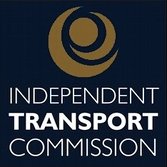Decarbonising road vehicles: the social and equity impacts

One of the ITC’s core interests has been the future of our roads, and we have undertaken a range of research work exploring reform of how we use and pay for road use. The future of our roads is now at a critical juncture. Faced with the prospect of high oil prices, falling levels of fuel duty, and a desire to accelerate the number of electric vehicles on our roads as a result of decarbonisation targets, policy makers are considering a range of measures to change how we pay for road use at the same time as reducing the number of conventional combustion engine vehicles on our roads.
Against this background the ITC plans to commission a new research project exploring the socio-economic impacts of plans to decarbonise our roads, in order to assess how zero carbon objectives can be implemented equitably. The policies set out in the Government’s Transport Decarbonisation Plan, including the phasing out of combustion engine vehicles to be replaced by electric vehicles, will be assessed. The research will offer guidance to policy makers and make recommendations on how policies can be improved. Key objectives of this study include examining the distributional impacts of current plans to decarbonise road use, understanding the winners and losers from a wholescale shift to electric private vehicles, and exploring how decarbonisation policies can be made more equitable and acceptable to the public. The ITC has successfully won a grant from the Rees Jeffreys Road Fund to help part fund this major study.
Phase One of the project, reviewing existing literature on the social impacts of vehicle decarbonisation, as well as analysis of the National Travel Survey (NTS) data sets has been taking place over the course of Summer 2024. The second phase, involving the public consultation work and including neighbourhood discussion groups, online surveys and stakeholder interviews, will take place during Autumn and Winter 2024/25.
This research is likely to be of keen interest to a wide audience, including policy makers in national and local government, road infrastructure providers, car manufacturers and the third sector.

